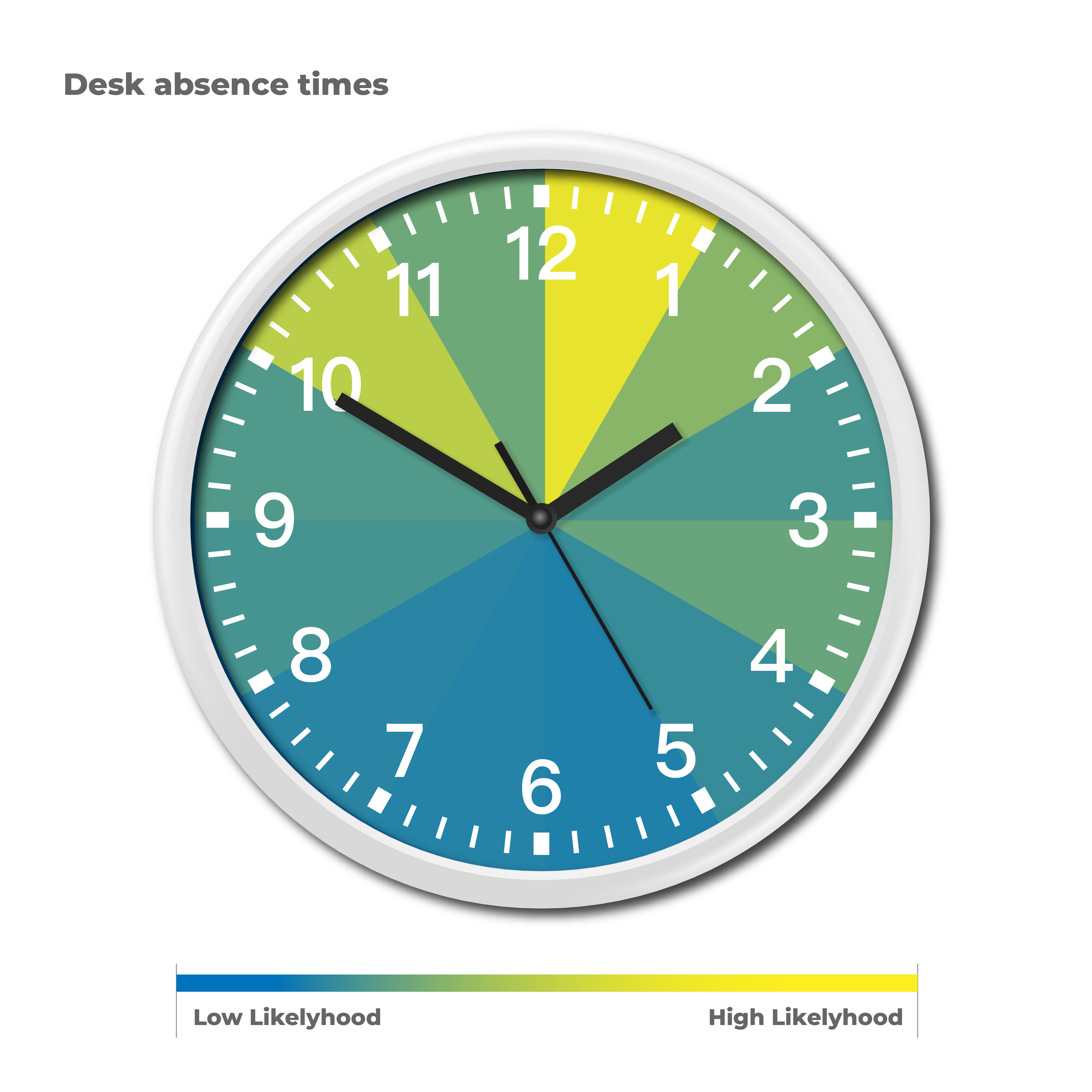Late Night Emails and Holly and Phil: How Working from Home Changed the Working Day

When most of the world were ordered to pack up their desks and work from home in March 2020, the way we go about our working days changed forever. Now that working from home and hybrid working have become the norm, we decided to take a look into the daily habits of UK workers and how working remotely has changed their attitudes and general outlook on work.
To do this, we surveyed 1,015 UK workers who were once based in the office but have been working from their homes for the last year or so.
Changing Break Times
When it comes to taking a break when you’re in the office, you might have felt a little guilty getting up and walking away from your desk in the middle of the morning. However, this all changes when you’re working from home. According to our survey (outside the regular lunchtime hours), between 10am and 11am is the most popular time of day for people to down tools and take a break. 22.4% of respondents said they took a break at this time, meaning a potential 6,858,280 people in the UK are sitting down for a break with Holly and Phil at 10am!
Breaking the stigma surrounding blue Mondays, when it came to productivity, we found that it was easily UK worker’s most productive day of the week. 24% of respondents selected Monday as their most productive day, fresh from the weekend and raring to go for the week. However, we can see this productivity quickly wane as the days go on, with 32.5% of the UK workforce saying Friday is their least productive day of the week. The biggest anomaly here was that 22% of 18-24-year-olds thought Monday was their least productive day, with Wednesday (26%) being the day the younger generation hit their peak performance.
Keeping Up Appearances
A big challenge for many workers during the pandemic and when working from home is ensuring that colleagues and employers know you’re hard at work and not slacking off. We asked respondents to tell us the ways they’ve changed their behaviour to help ensure everyone they work with knows they’re putting in the hard hours.
Over half (51%) of our survey respondents said that they’ve made sure they respond quickly to emails and calls when working from home to help ensure their colleagues know that they’re working. Further to this, 49% of respondents said that they send emails either early in the morning or late at night and 47% regularly check in with calls or emails.
Top 5 Working from Home Tricks
| Respond quickly to colleagues | 51% |
| Send emails early in the morning or late at night | 49% |
| Check in regularly with calls and emails | 47% |
| Make sure Teams is rarely on ‘away’ status | 29% |
| Download Teams onto their phone | 20% |
Trust from Employers
The good news for many employers is that UK workers generally feel like they’re trusted by their employers to do a good job and work as hard as they would when they’re in the office. 91% of respondents said they felt trusted by their employers when working in the office pre-pandemic, this only dropped to 89% when working from home in the winter and 90% when working from home as lockdown eased in the UK.
Further to this, 88.7% of workers feel trusted to complete their set hours in a week, 88.6% feel like their employers trust they’re being honest about their workloads and 90% think their employers trust them to be at their desk on time every morning.
What Can Businesses Learn from This?
Much of the change that was sparked by the Covid-19 pandemic took matters out of the hands of employers, forcing big changes without any planning and often very little direction. This has made adapting to new working conditions particularly difficult for both employers and employees alike.
The reassuring news for employers is that their staff generally seem to feel trusted to do the right thing when working from home and work just as hard as they would if they were in the office. However, being isolated away from the rest of the workforce clearly has an effect on workers and their mental health. Here are a few ways to help workers as they work from home:
- Reach out to your staff
Keeping regularly in touch with your team can make a big difference to their morale. Ensure they’re always given the chance to update you on their workload and do your best to help them manage it.
- Hold regular catch-up meetings
The importance of a regular one-to-one catch-up with staff cannot be understated. This is the perfect time to address any concerns they have and discuss their performance, ensuring they don’t feel left in the dark.
- Explain that you understand the challenges
Working from home has different challenges for everyone. Whether your employees have children, pets or other responsibilities, perhaps they even just have their own struggles with working at home, it’s important to show an understanding.
- Be flexible
Working from home provides the opportunity for staff to add more flexibility to their working lives. As an employer, this is a great opportunity for you to embrace this and allow staff to find their best way of working. Doing this should help them feel less worried about their working habits.
Working from home is likely to be one of the longest lasting legacies of the pandemic, meaning it’s important to adapt and evolve to a new way of working. As businesses move forward, getting on board now will help provide a solid foundation for employees.









